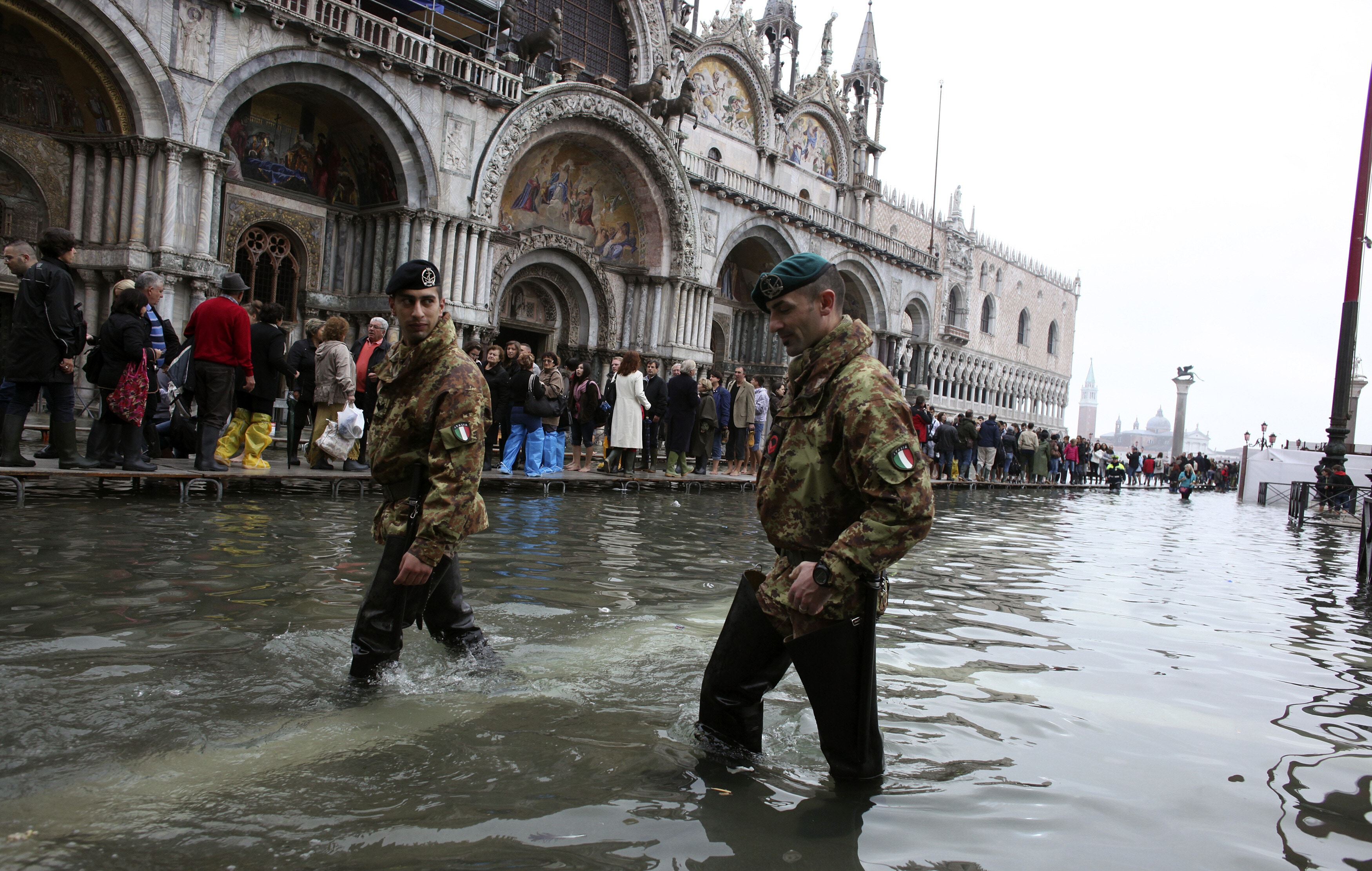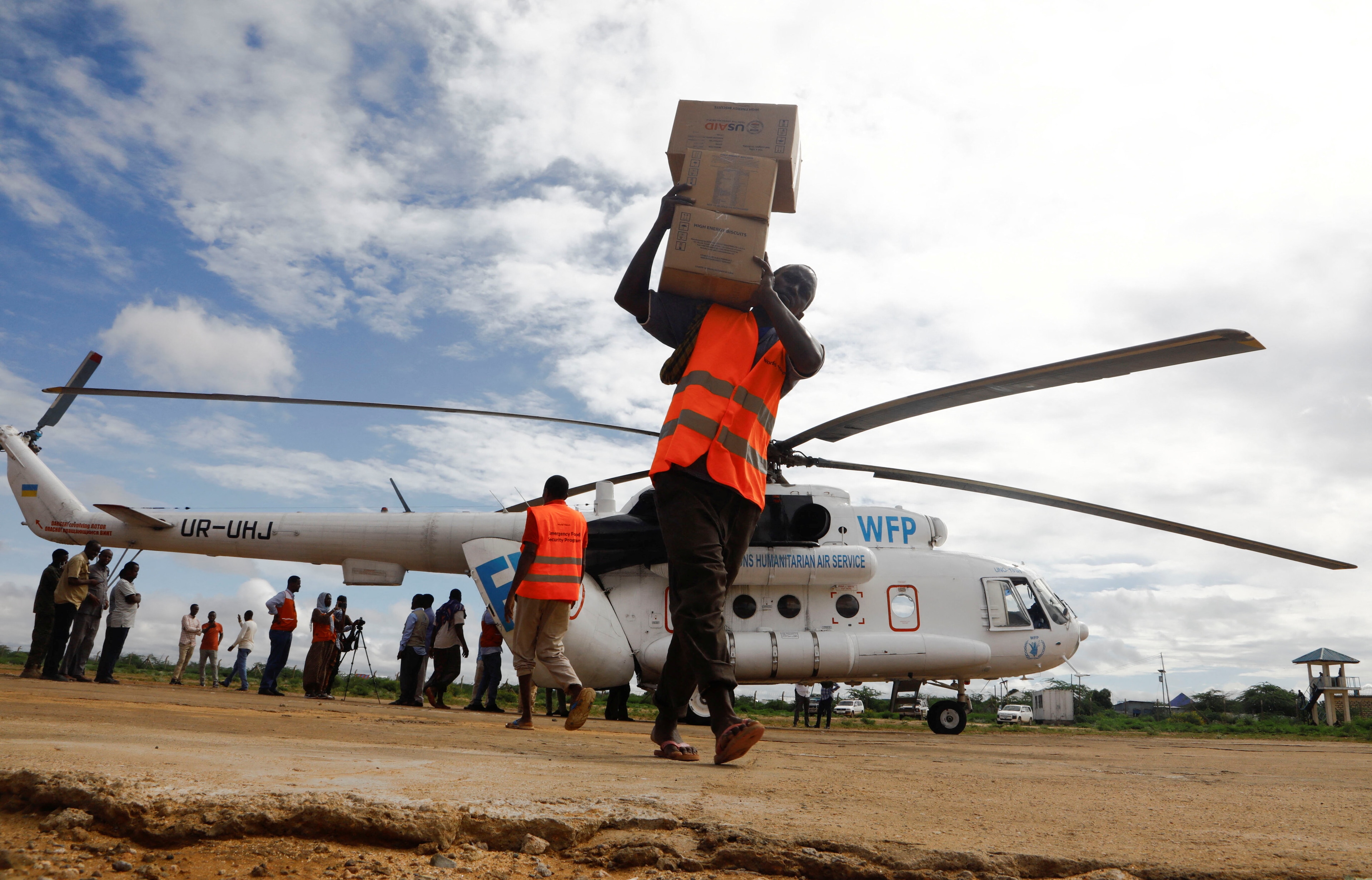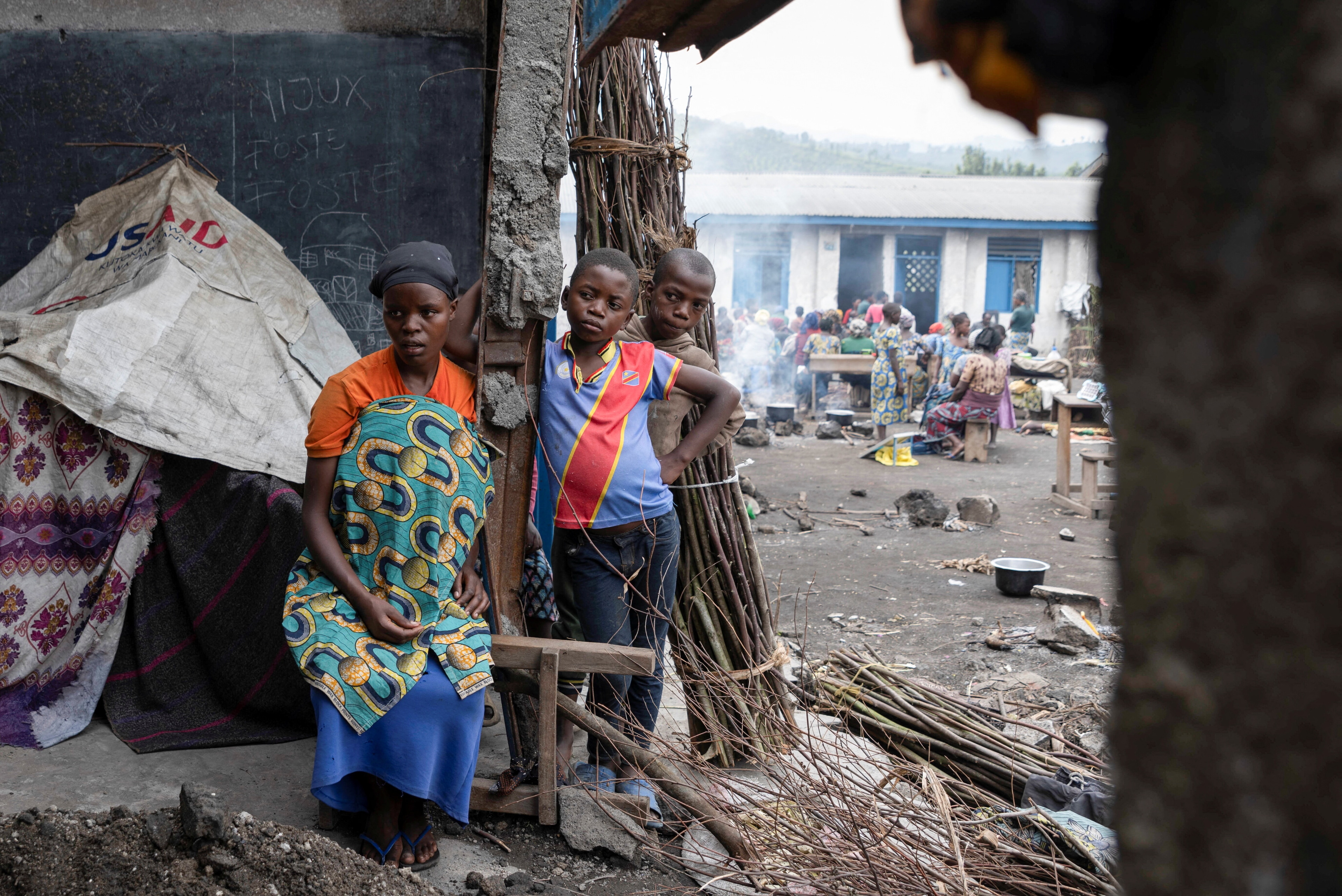Humanitarian and resilience investing in the COVID-19 era
New financing models will increase access to clean water in fragile settings.
Image: REUTERS/Adnan Abidi
Sigrid Kaag
UN Middle East Envoy/Senior Humanitarian & Reconstruction Coordinator for Gaza, United NationsWendy Woods
Vice-Chair, Social Impact, Climate and Sustainability; Managing Director and Senior Partner, Boston Consulting Group (BCG)Stay up to date:
Blended Finance
- Despite the pandemic, there is ample investor capital ready to fill the Sustainable Development Goals financing gap.
- Humanitarian and Resilience Investing leverages private capital to directly benefit people and communities in fragile contexts.
- Investors and development organizations must work together to identify projects that catalyze investor capital.
The COVID-19 pandemic threatens already fragile social and economic systems and could potentially impact the lives of up to 2 billion people. Based on estimates by the World Bank, it would push 88-115 million people into extreme poverty in 2020, reversing decades of continuous progress. COVID-19 has already highlighted our global connectedness making it abundantly clear that our socioeconomic systems are only as robust as the most vulnerable links in the chain.
We are likely to witness a reduction of aid budgets as governments face economic pressures, increasing demand to supplement donor funds and public investments with private return-seeking capital, to fill the $2.5 trillion Sustainable Development Goals (SDG) annual financing gap.
The gap is relatively small when viewed in comparison to the roughly $200 trillion in private wealth under management, and the stressors of the present moment underline the need to act swiftly to mobilize capital to meet this need. Attracting the private sector back into markets that need it most will require all of us – public and private sector – to ensure that countries are focused on reforms and on developing bankable projects that create opportunities for private solutions that are sustainable and inclusive.
Despite the economic damage wrought by the pandemic, we are confident that there is ample investor capital ready to fill this financing gap. 72% of impact investors surveyed by the Global Impact Investing Network (GIIN) expect to maintain or expand their portfolios in response to COVID-19.
Institutional investors are now, more than ever, seeking to strengthen the “S” in Environmental, Social and Governance (ESG) metrics, a gap that can be met by investments to prevent fragile situations from spiralling into crisis and to pave the road towards a sustainable economic recovery. We continue to see a notable rise in Social Bond issuance in response to the COVID-19 pandemic. Issuance data shows an increase of over 350% in social bonds in 2020 ($17.2bn at this time in 2019 compared to $43.8bn 2020 to date).
Corporations, too, are eagerly seeking opportunities for positive impact and present a critical source of both investment capital and implementation capabilities. Mastercard, for example, has expanded its commitment to bring a total of 1 billion people and 50 million micro and small businesses into the digital economy by 2025.
Humanitarian and Resilience Investing is an emerging impact investing theme focused on leveraging private capital to directly benefit people and communities in fragile contexts by investing in local resilience and markets. Transactions in this space typically involve blending return-seeking investor capital with de-risking concessional capital to make interventions investable, in partnership with humanitarian and development actors to ensure that capital is deployed responsibly and efficiently in order to create measurable impact.
For example, building on the launch of the first Humanitarian Impact Bond in 2017, the International Committee of the Red Cross (ICRC) is working with public development banks, governments and private partners to explore new financing models that will increase the access to cleaner and cheaper water in fragile settings, while improving financial sustainability.
This nascent investment theme is being championed by the Humanitarian and Resilience Investing Initiative; co-chaired by the World Economic Forum, Credit Suisse, ICRC, the Netherlands, the World Bank Group, and supported by Boston Consulting Group. The initiative brings together investors and corporates with humanitarian and development organizations who work together to identify pioneering projects that catalyze investor capital and strengthen collaboration across different communities.
As Co-chairs of the initiative, we advocate that all stakeholders act boldly and decisively to carry this forward, combat fragility and ensure we leave no one behind:
- Donor governments should grow their aid budgets to keep pace with growing emergencies and show leadership and international solidarity, leverage their influence, deploy smart funding, and partner with new actors to support innovative financing.
- Humanitarian and development organizations should respond by focusing aid on emergencies and by building a pipeline of investable projects that support more resilient societies, working across sectors and organizational boundaries to achieve scale.
- Investors should engage early in the process of building this pipeline to lend their expertise, better understand and invest in opportunities in fragile contexts.
- Development finance institutions should augment existing financing mechanisms with innovative approaches that deploy de-risking capital necessary to catalyze investor involvement. For example, the World Bank Group’s IDA-IFC-MIGA Private Sector Window helps de-risk in the most challenging poor countries, with funds totalling $3.87 billion from 2018-2023.
Financing Sustainable Development
The Humanitarian and Resilience Investing community will continue to collaborate over the next 12 months to accelerate the development of this market with a focus on three core areas. Firstly, the initiative will cultivate interventions that build resilience across water and sanitation, health, food, and energy systems, leveraging investor capital to realize impact that is additional to what would have been achievable with concessional capital alone.
Secondly, the initiative will strengthen the expertise and readiness of donors, humanitarian and development actors to catalyze private investment by sharing or developing tools, data and capabilities.
Finally, the initiative will work to articulate to investors the deal and portfolio structures that are viable in fragile contexts, as well as disclosure standards for measuring impact.
Decisive action by all players must be taken now to empower vulnerable communities to weather the COVID-19 storm and prevent a reversal of gains made over the past decades.
Don't miss any update on this topic
Create a free account and access your personalized content collection with our latest publications and analyses.
License and Republishing
World Economic Forum articles may be republished in accordance with the Creative Commons Attribution-NonCommercial-NoDerivatives 4.0 International Public License, and in accordance with our Terms of Use.
The views expressed in this article are those of the author alone and not the World Economic Forum.
Forum Stories newsletter
Bringing you weekly curated insights and analysis on the global issues that matter.
More on Resilience, Peace and SecuritySee all
Florian Krampe
July 31, 2025
Naoko Tochibayashi
July 28, 2025
Vanina Farber
July 21, 2025
Robert Piper
July 17, 2025
Resilience roundtable: How emerging markets can thrive amid geopolitical and geoeconomic uncertainty
Børge Brende, Bob Sternfels, Mohammed Al-Jadaan and Odile Françoise Renaud-Basso
July 9, 2025
Kate Whiting
June 19, 2025





